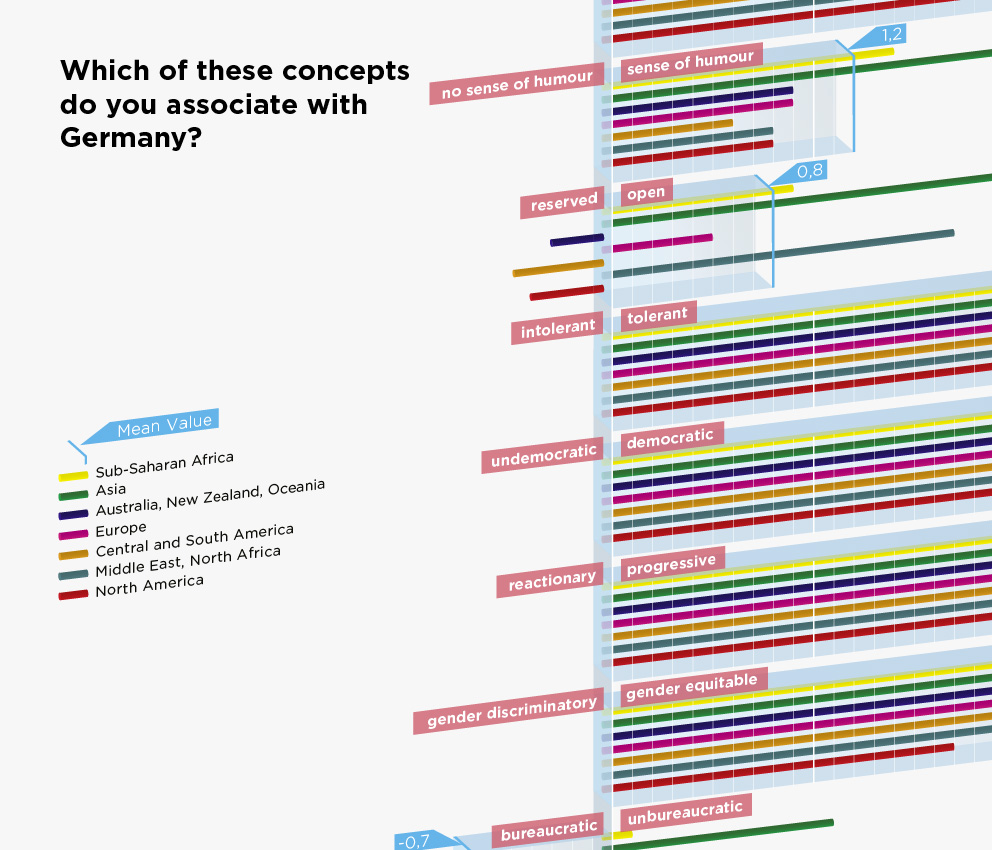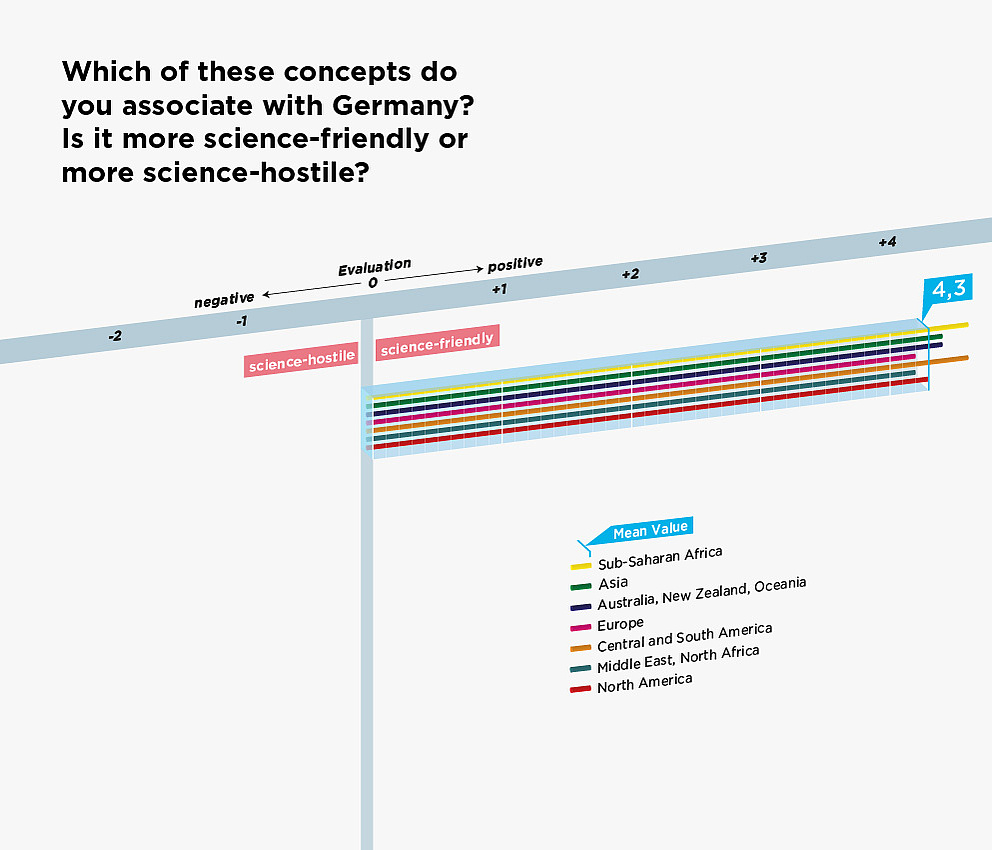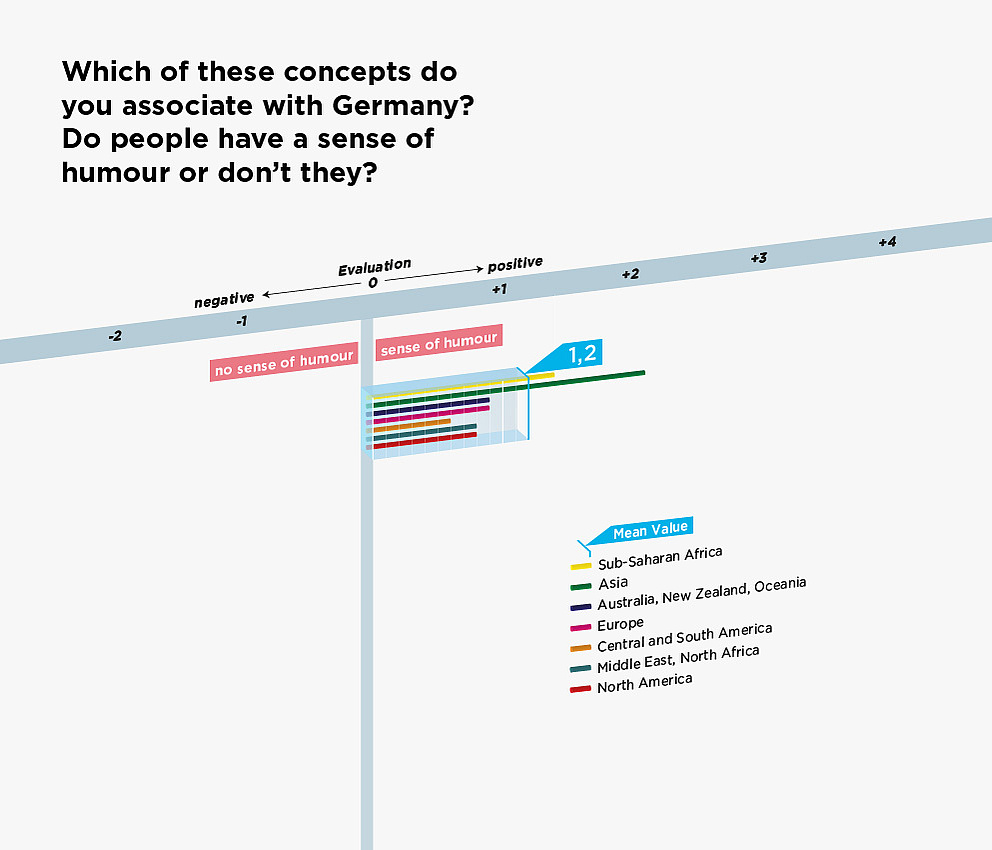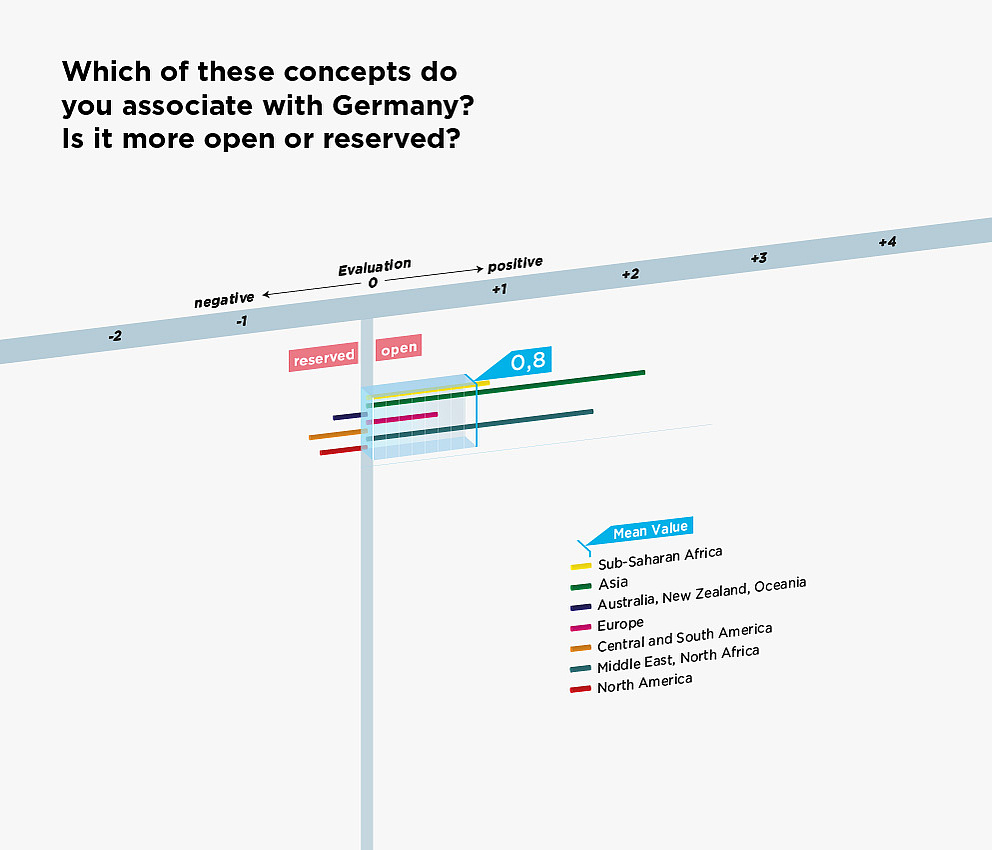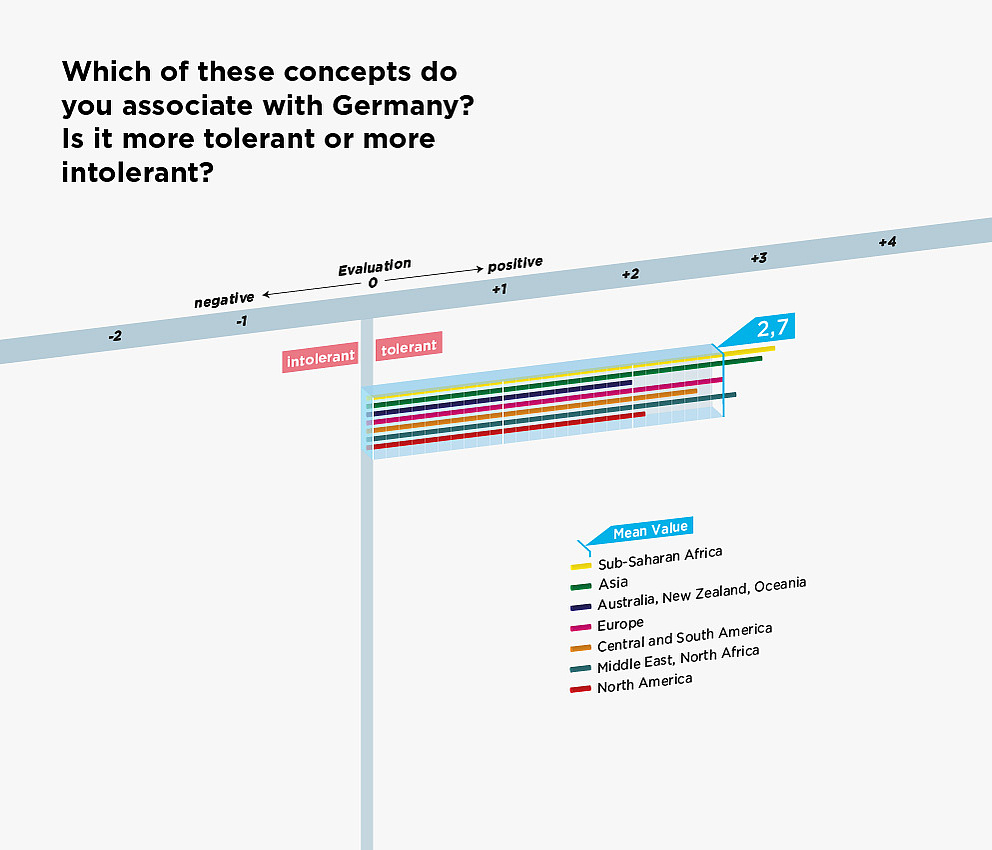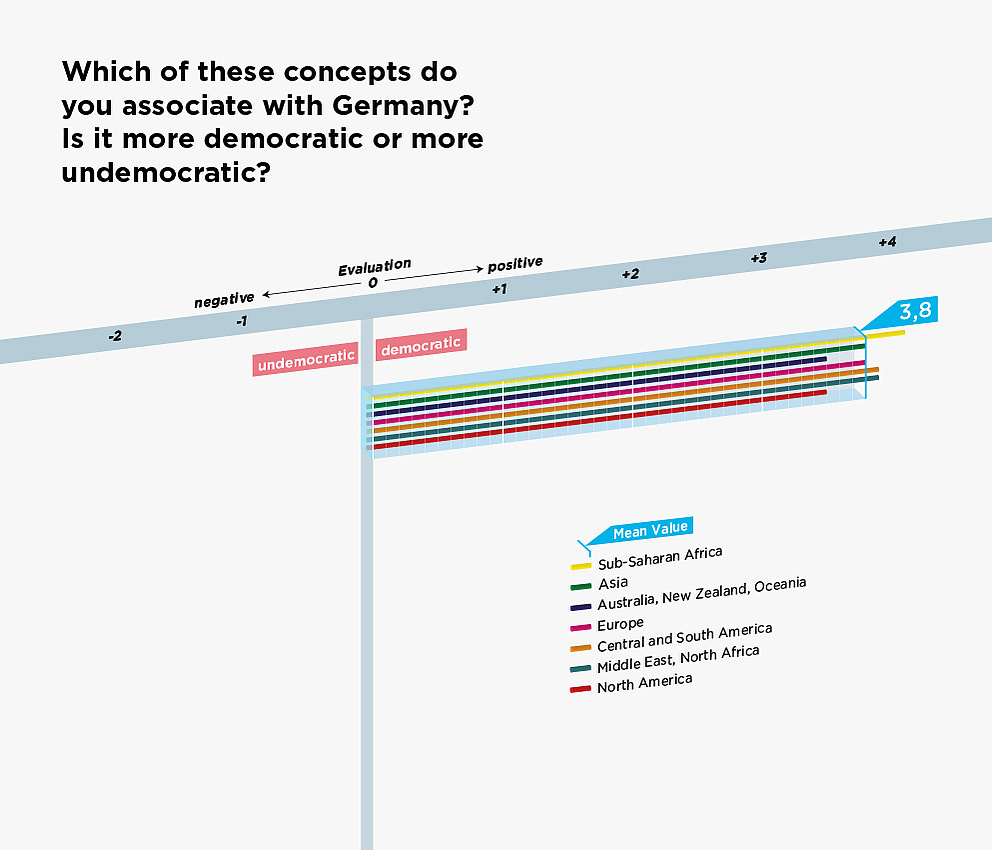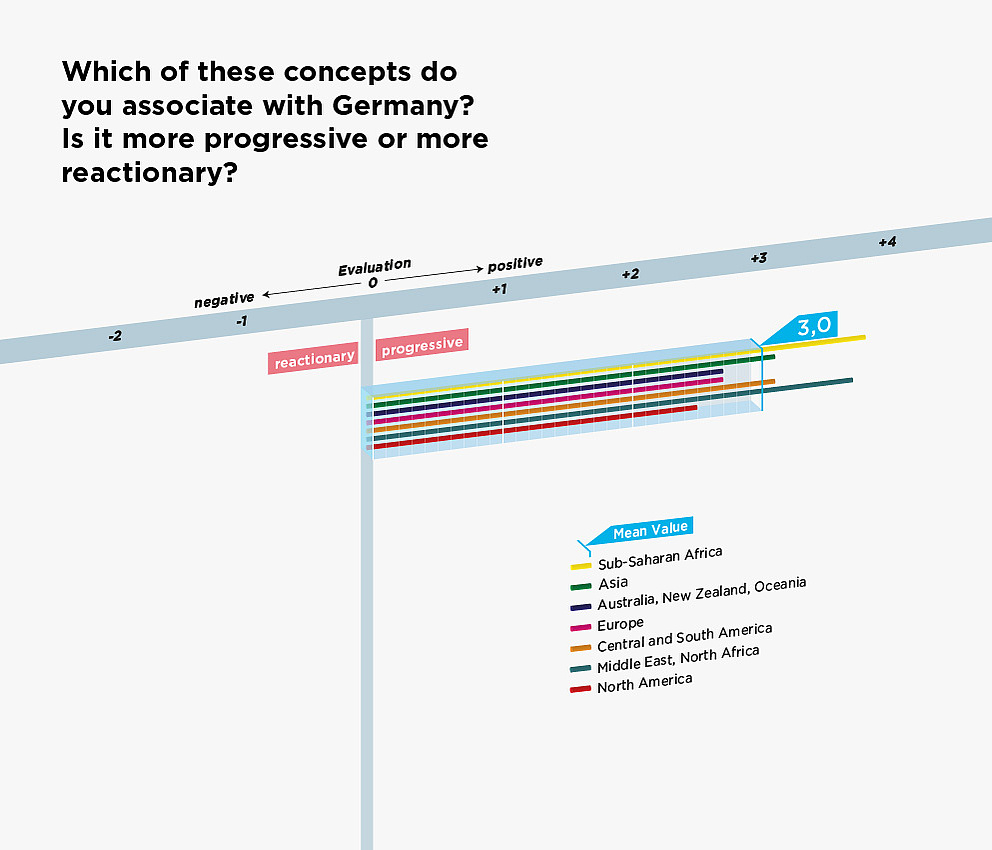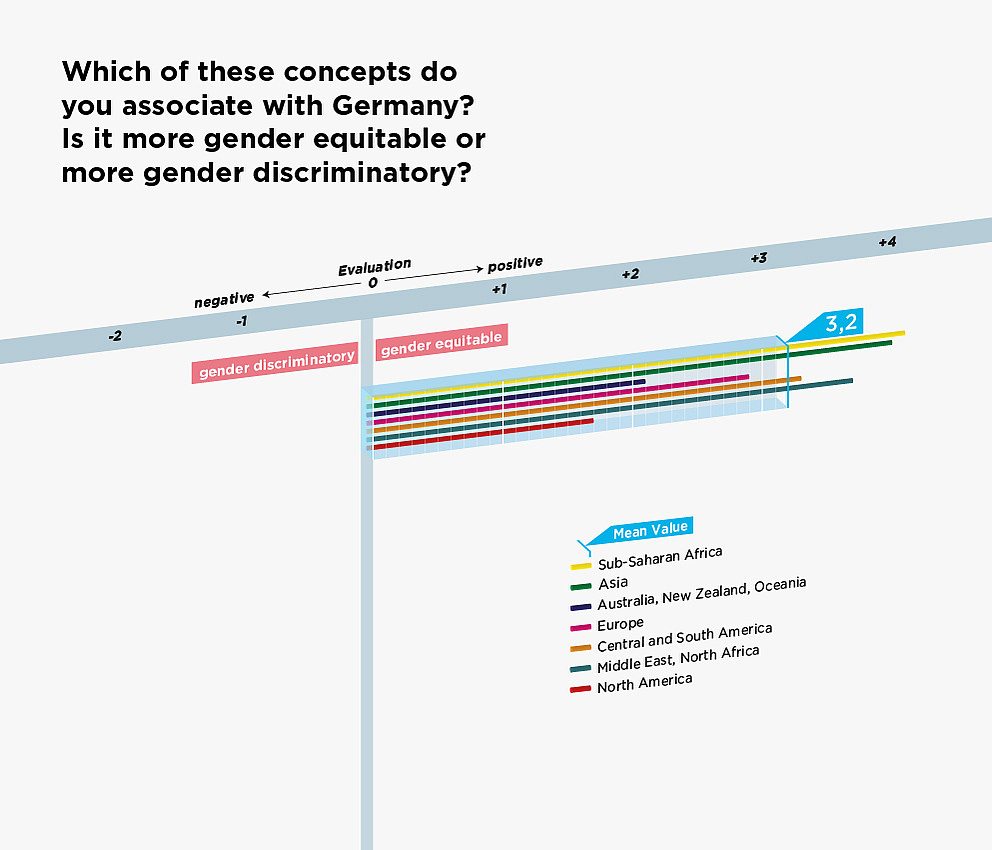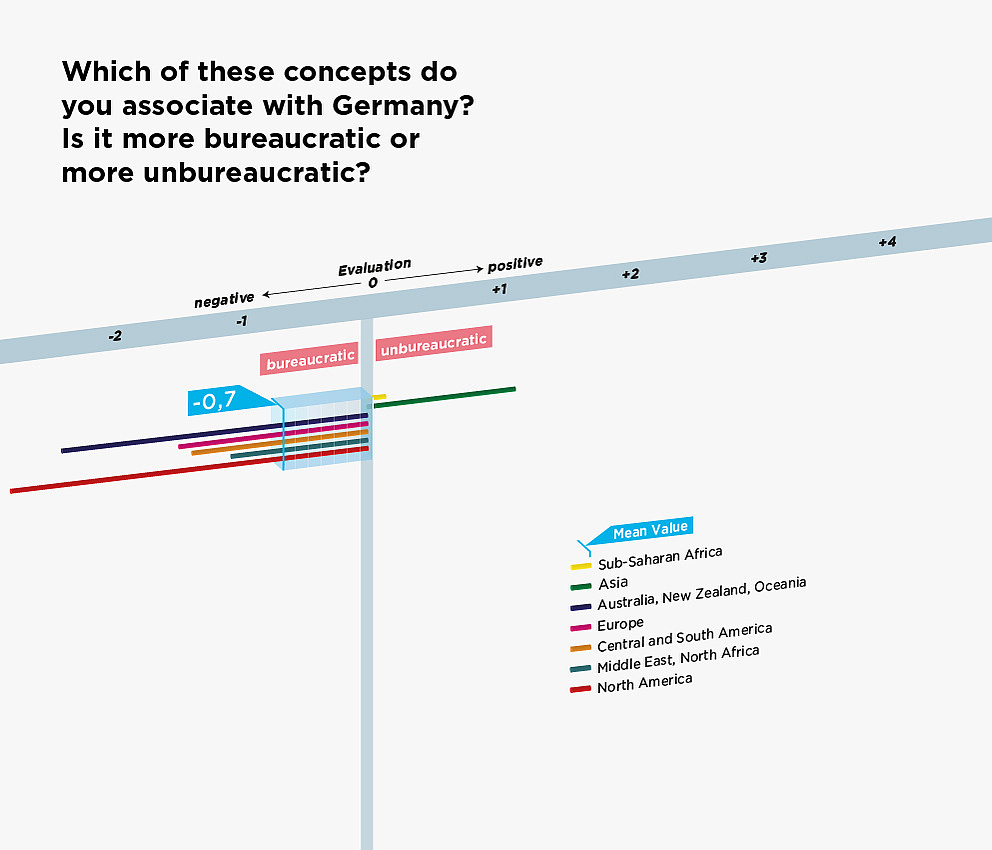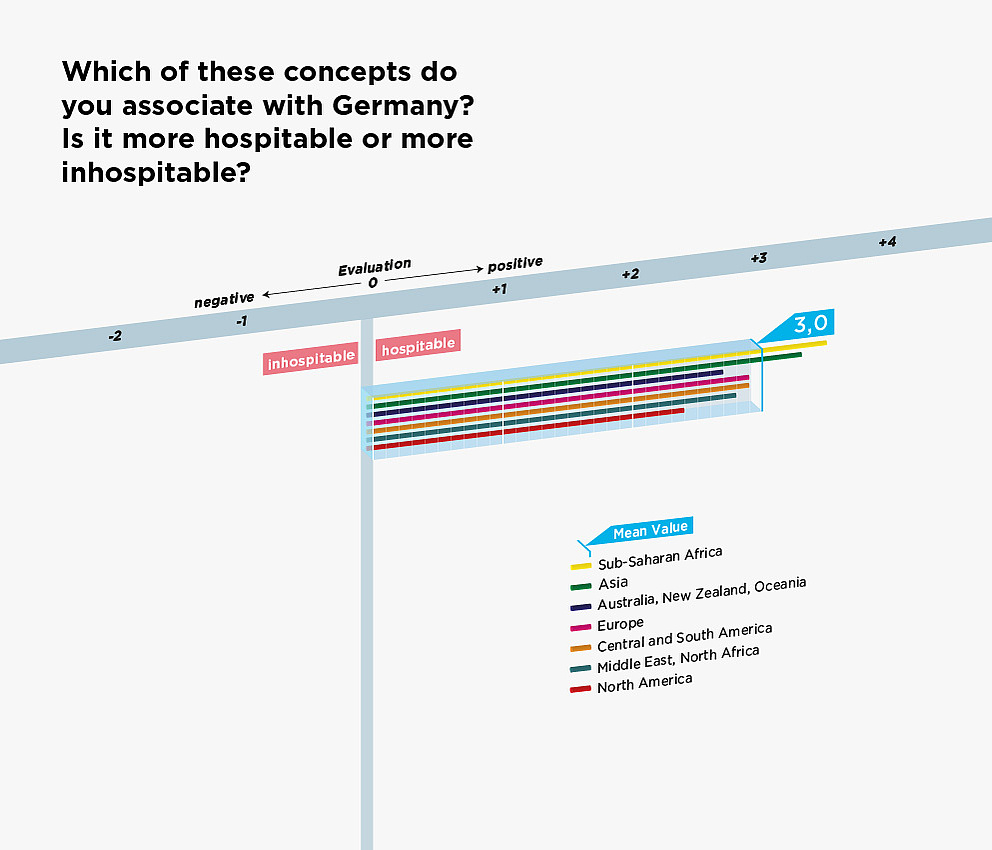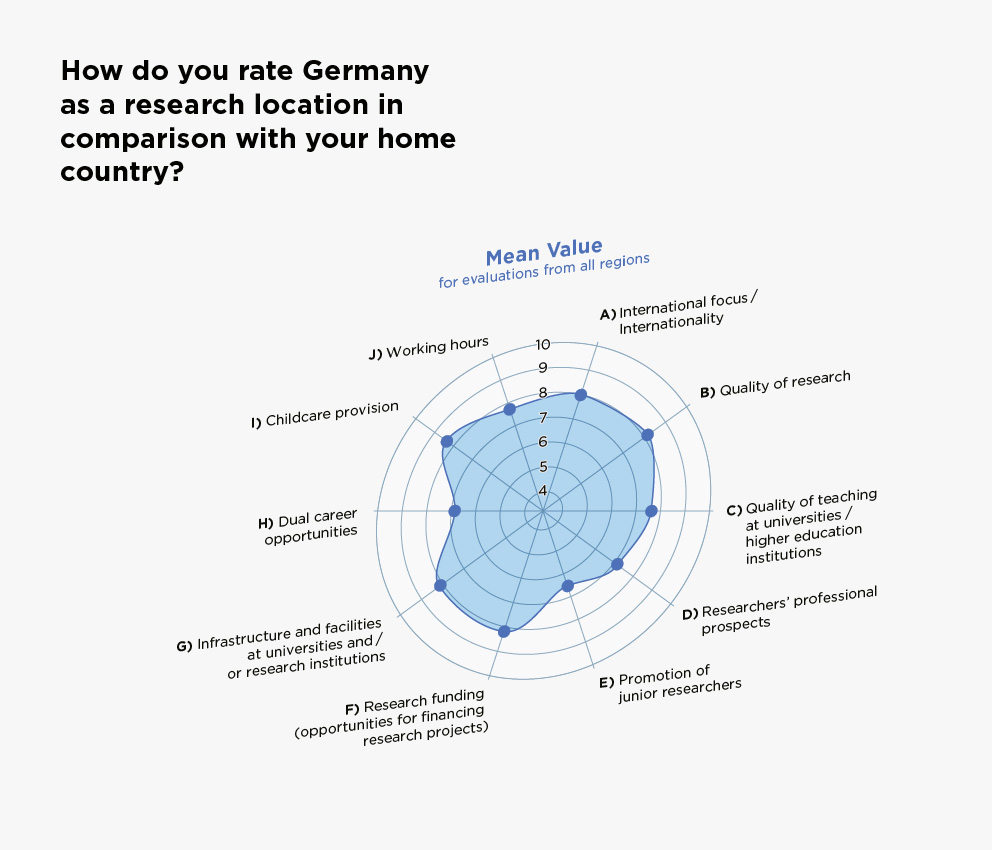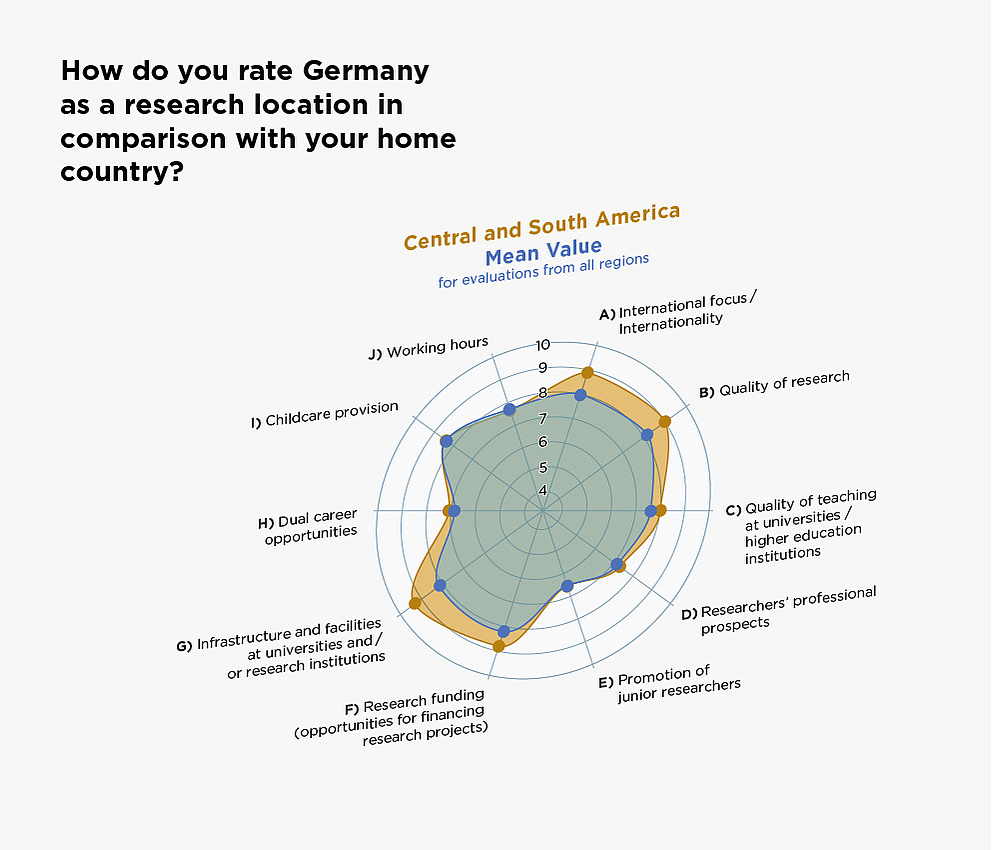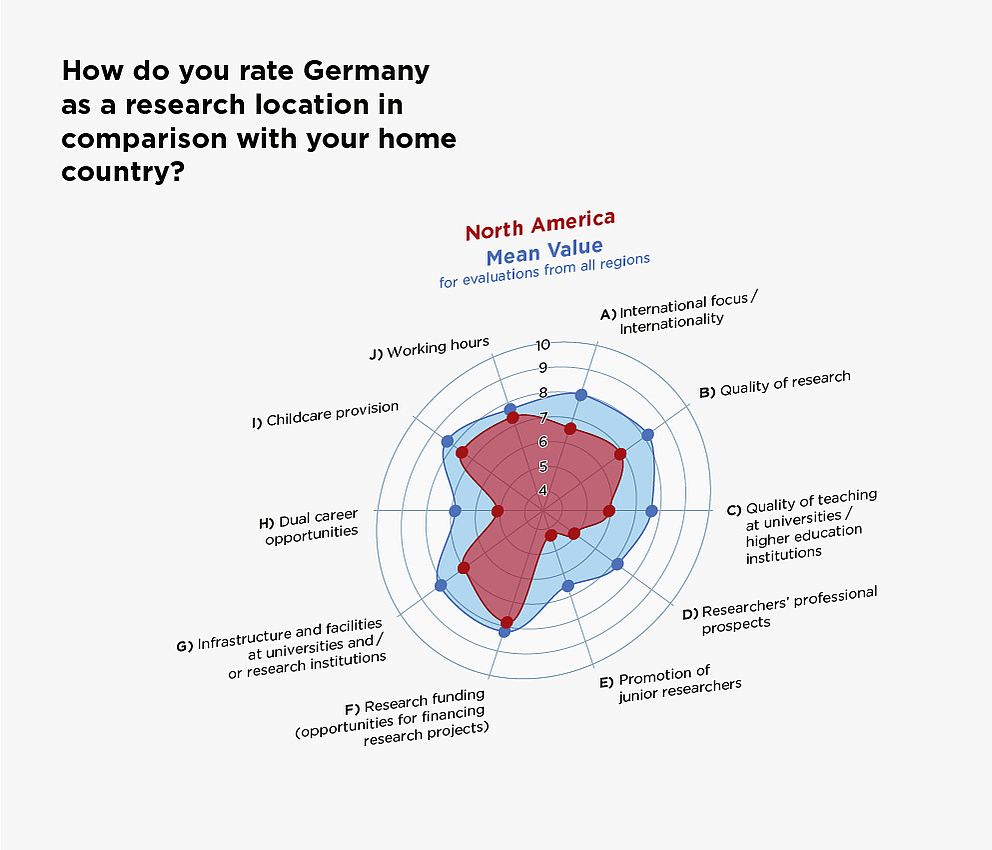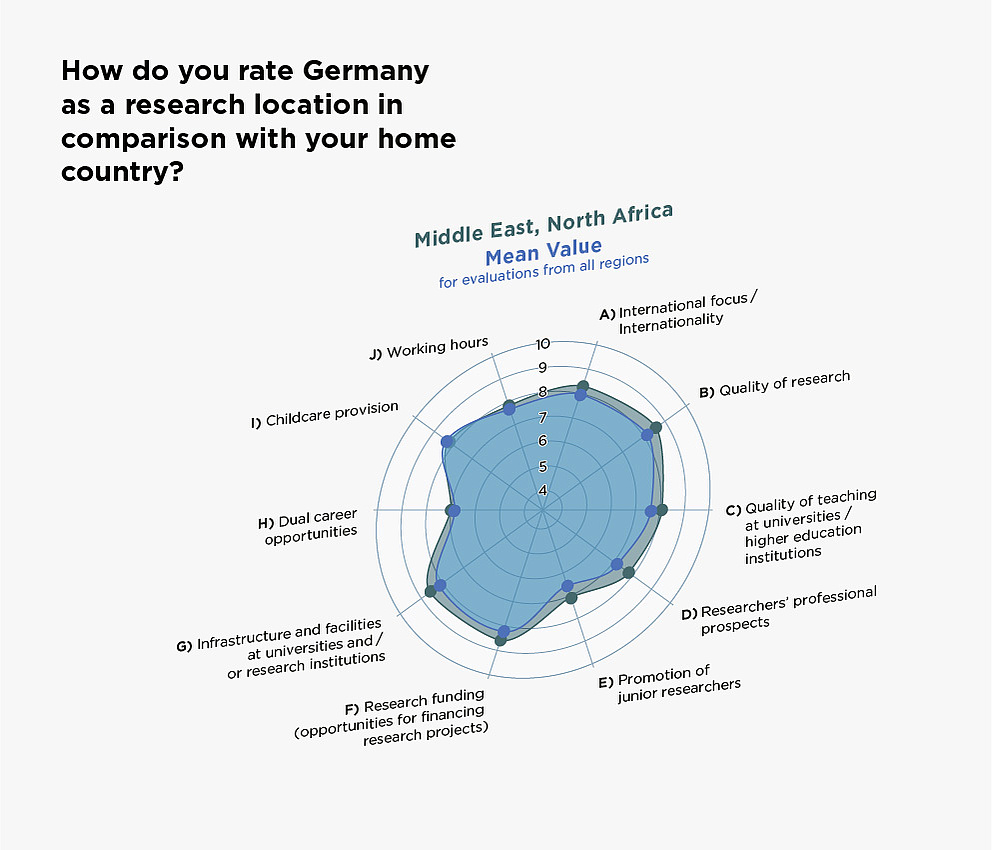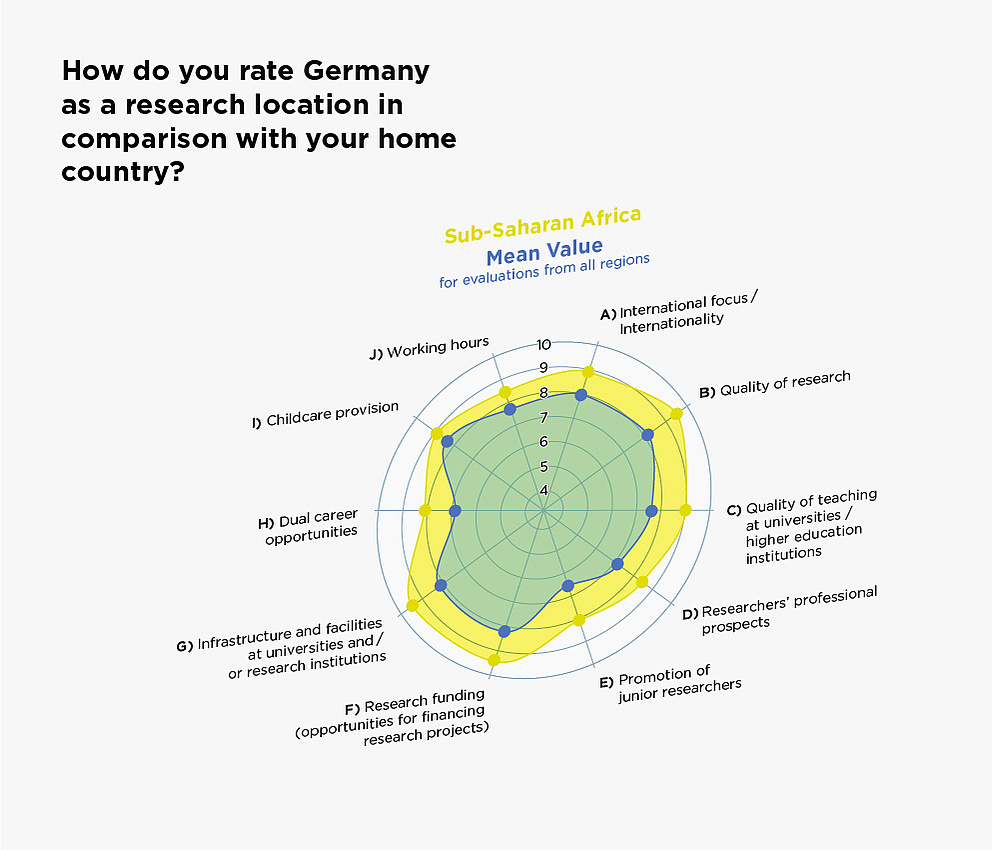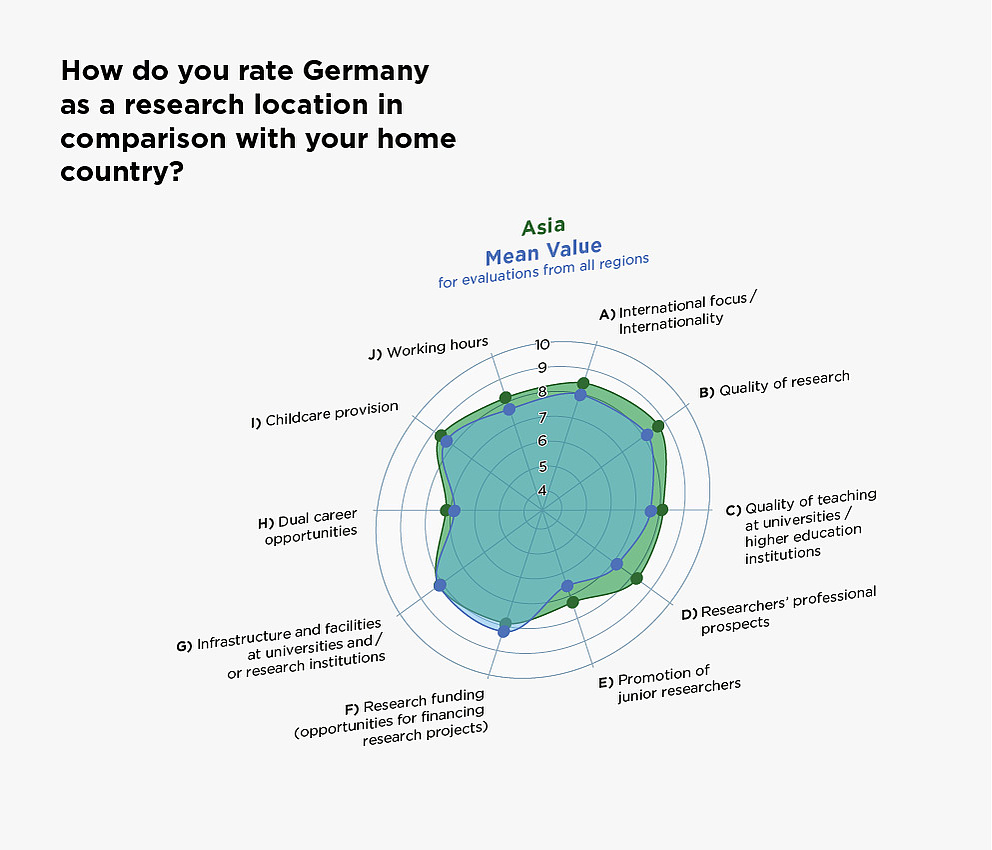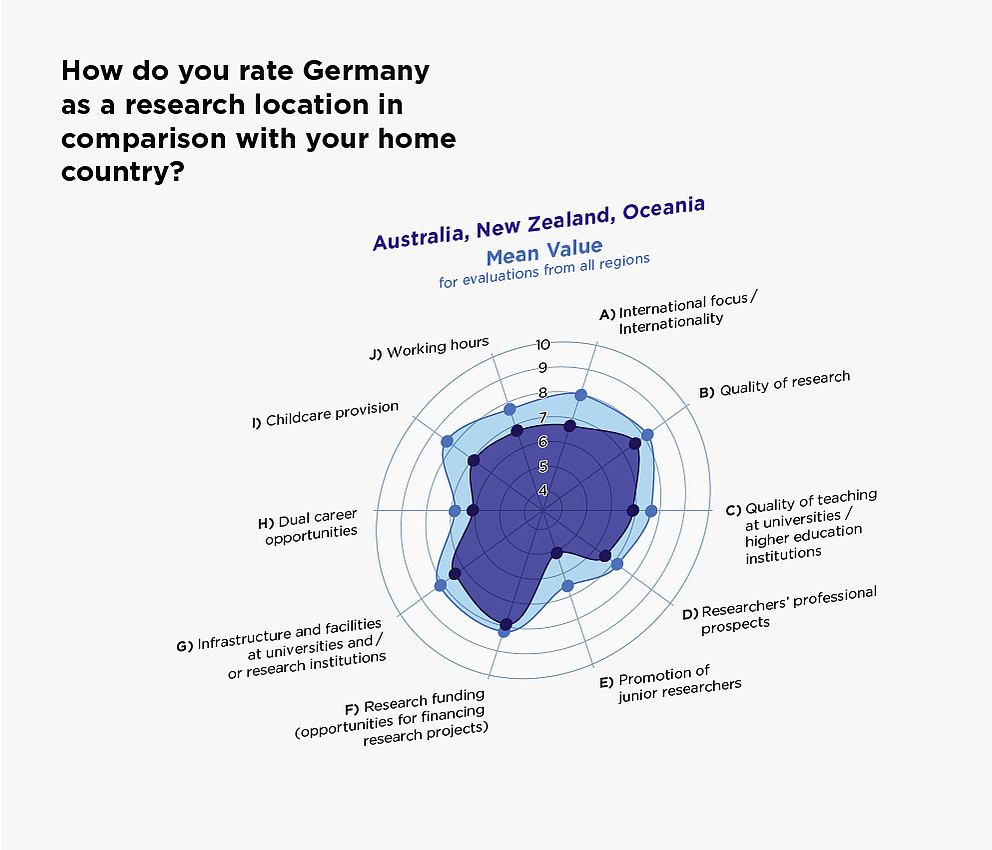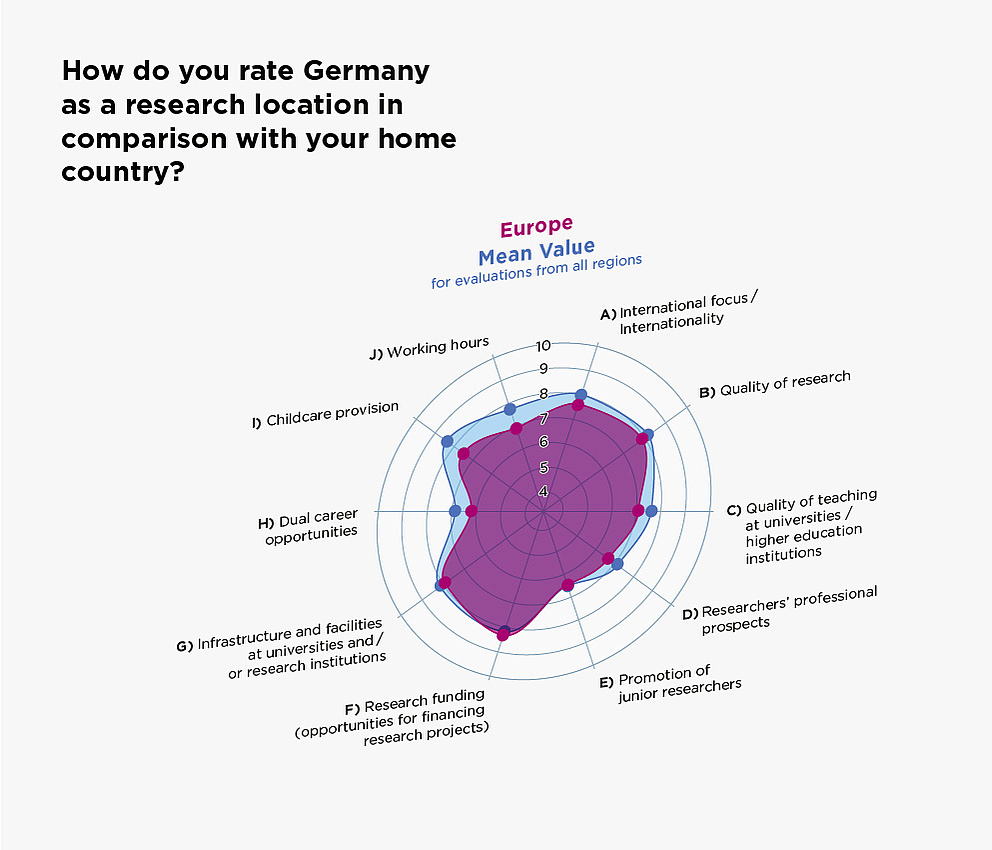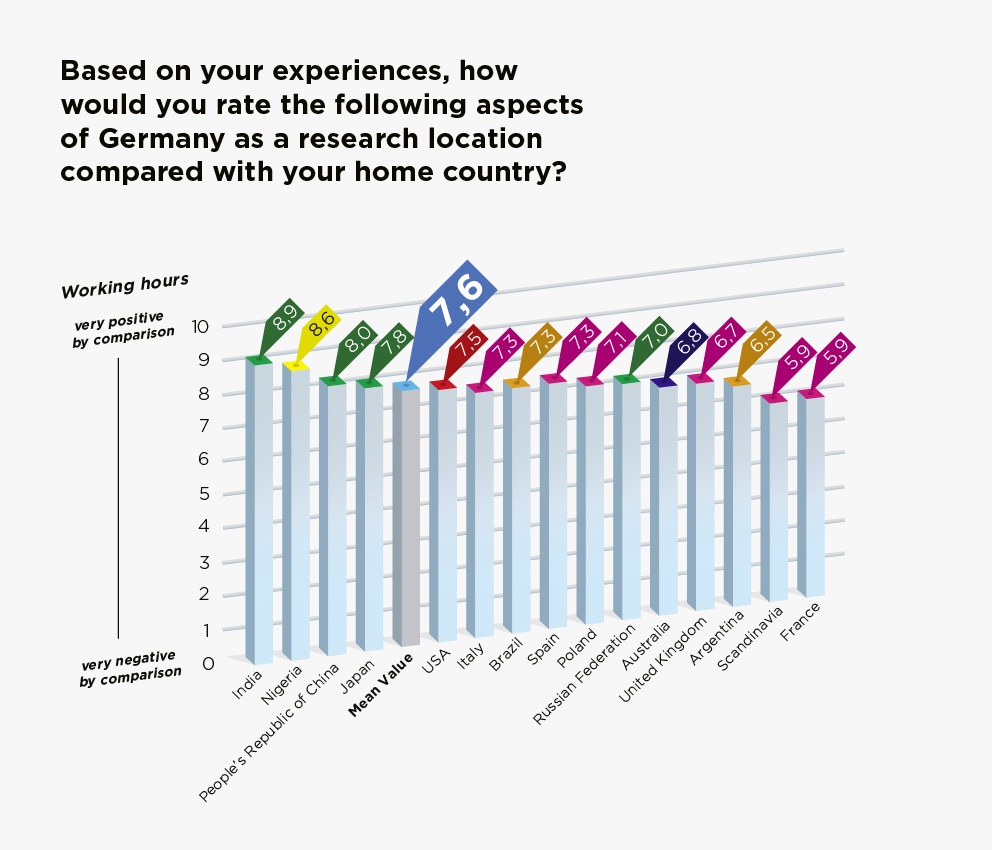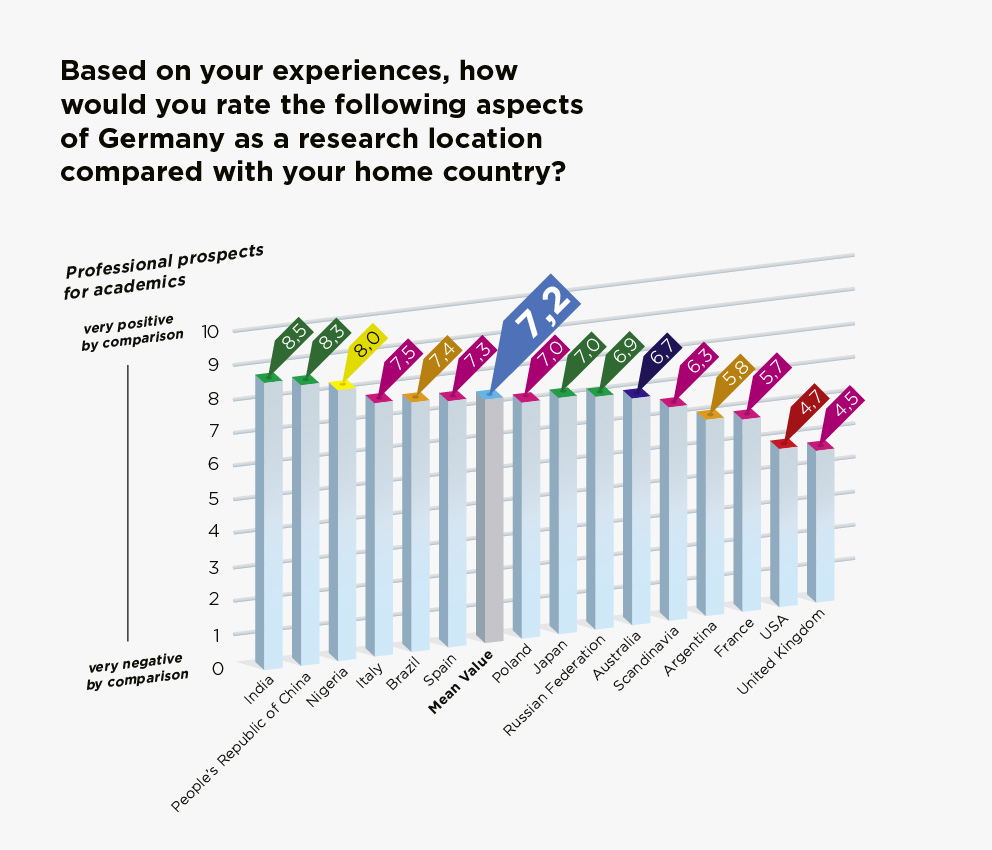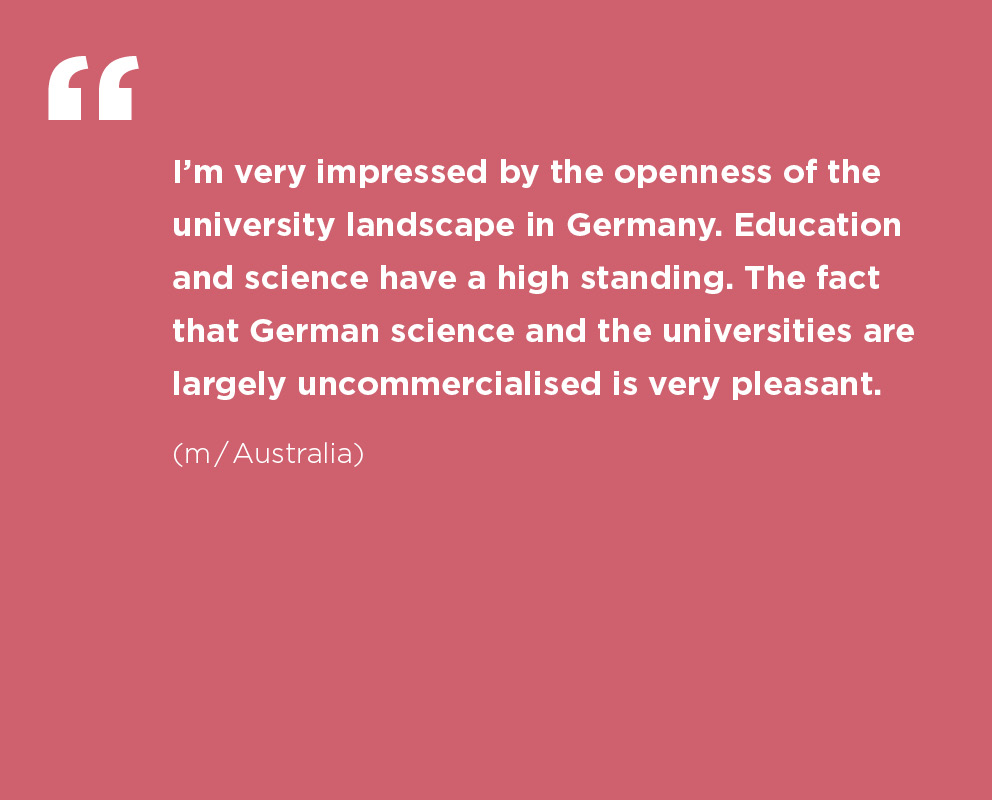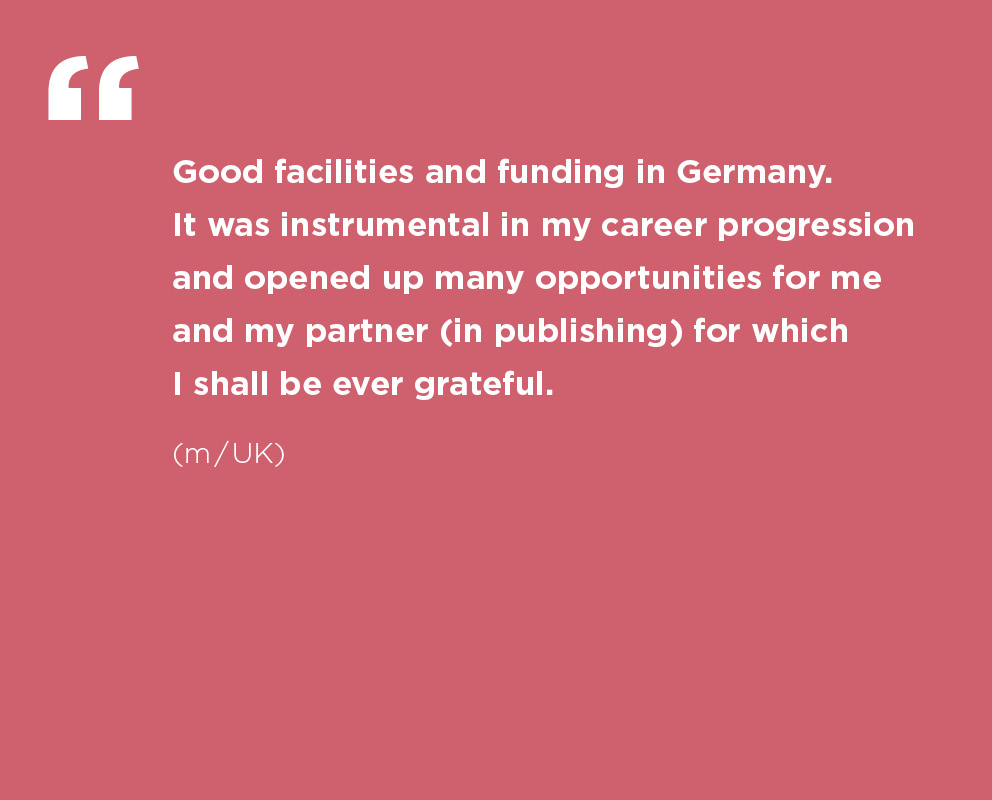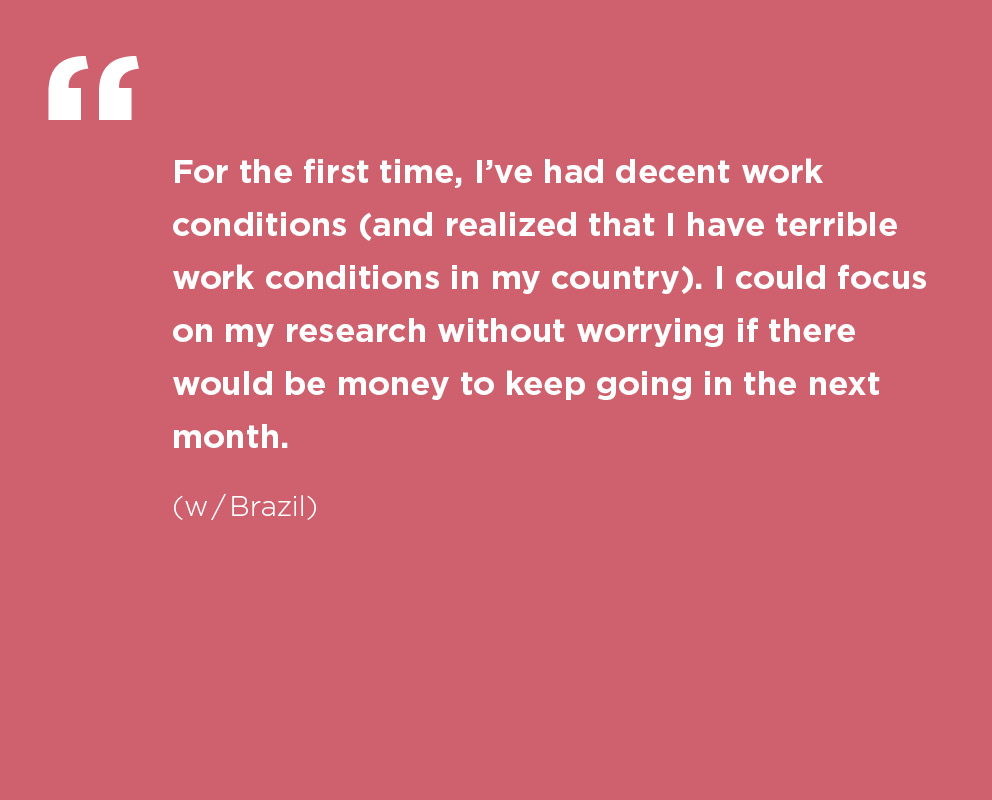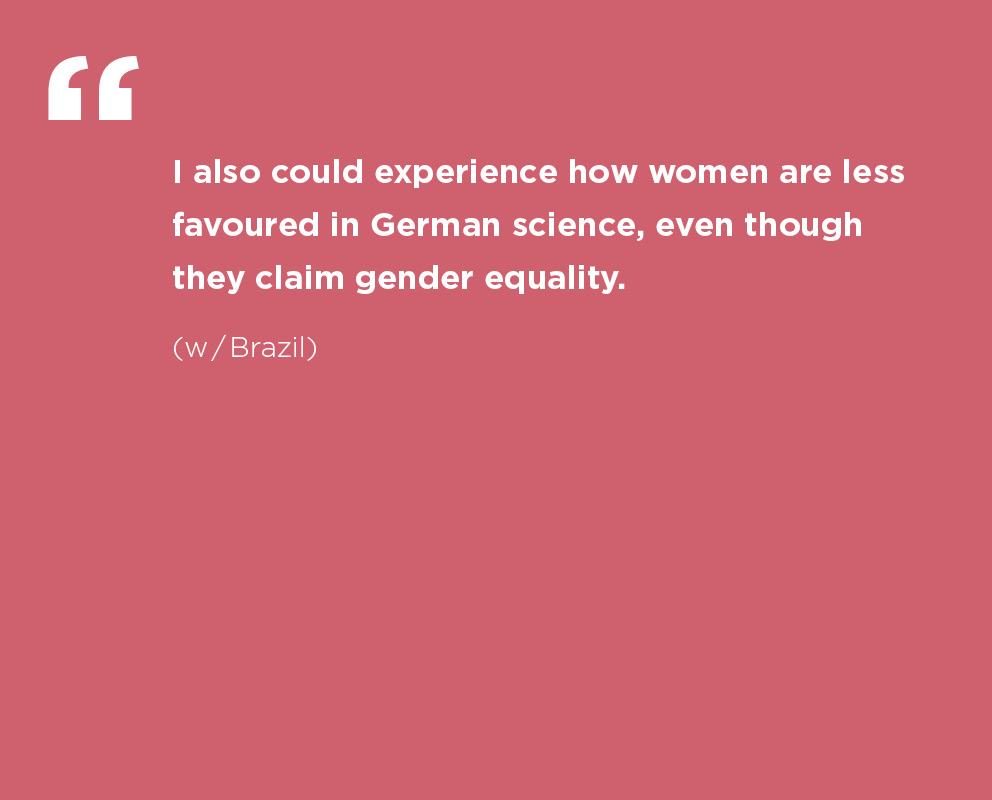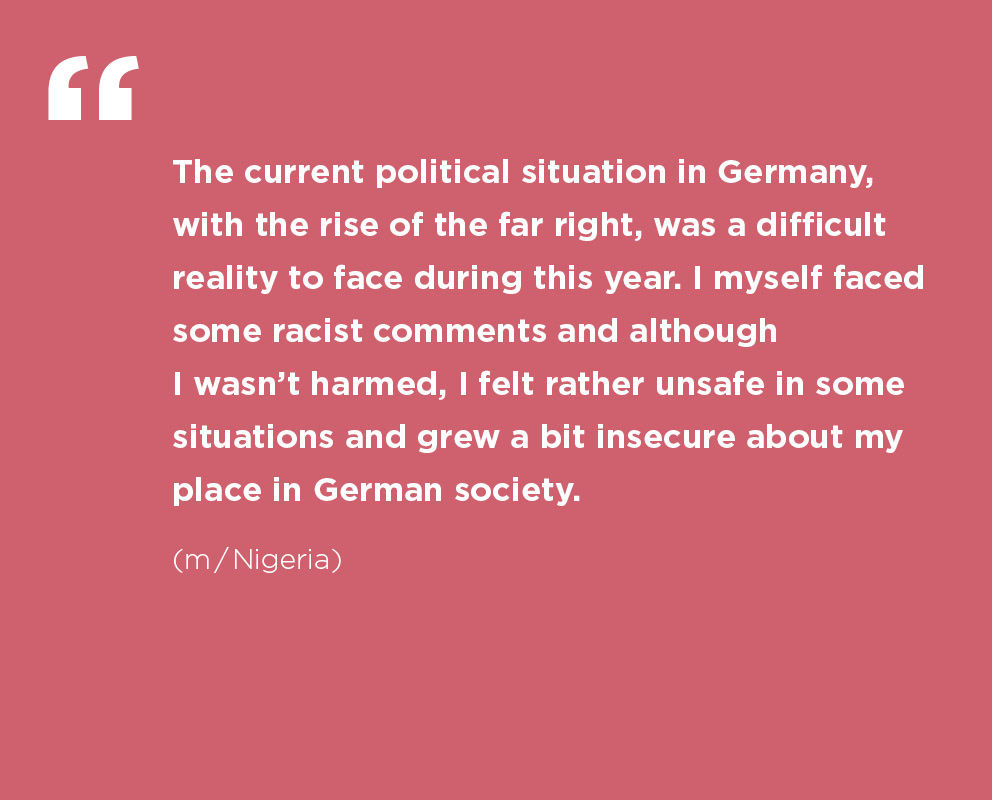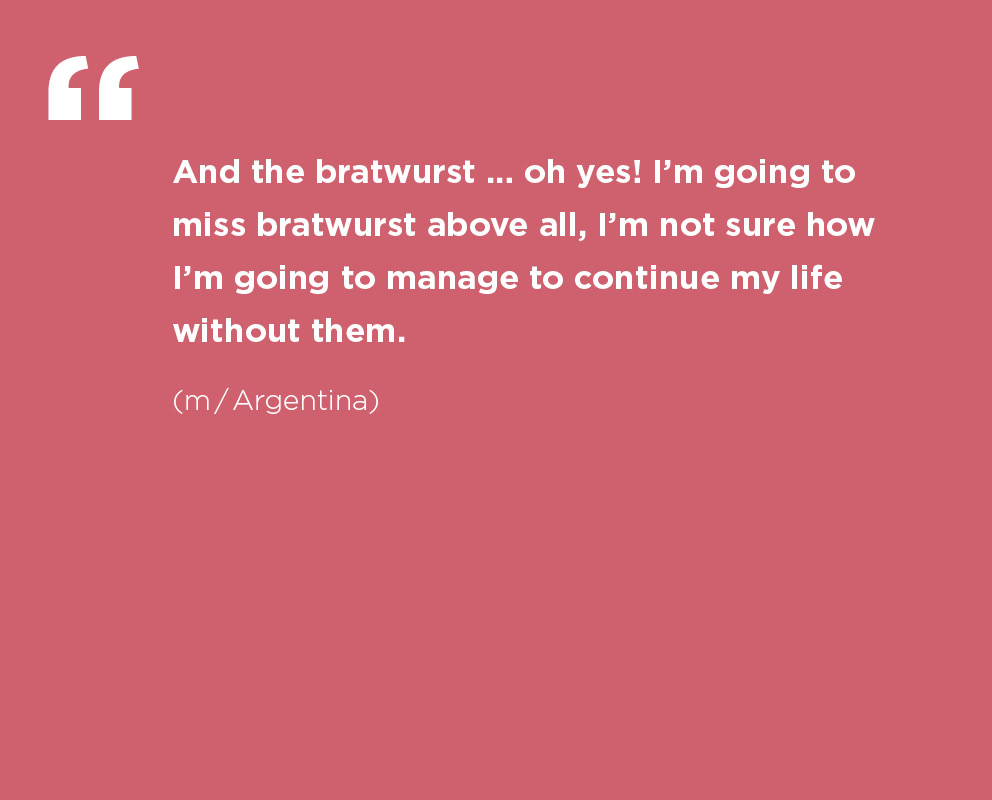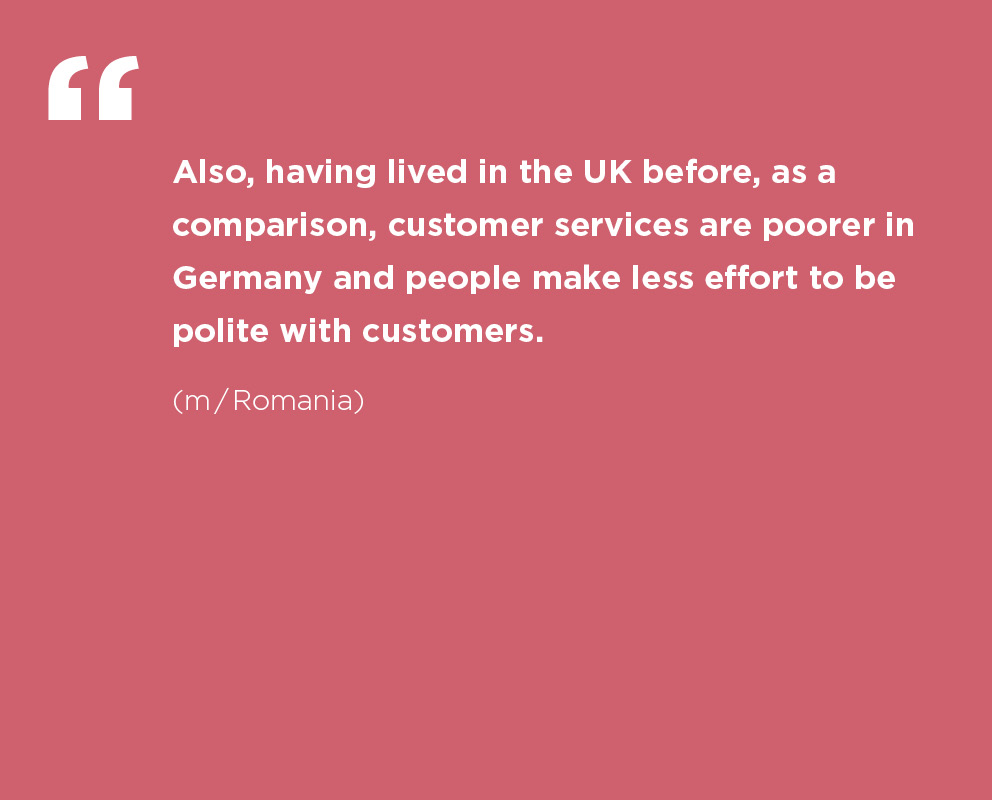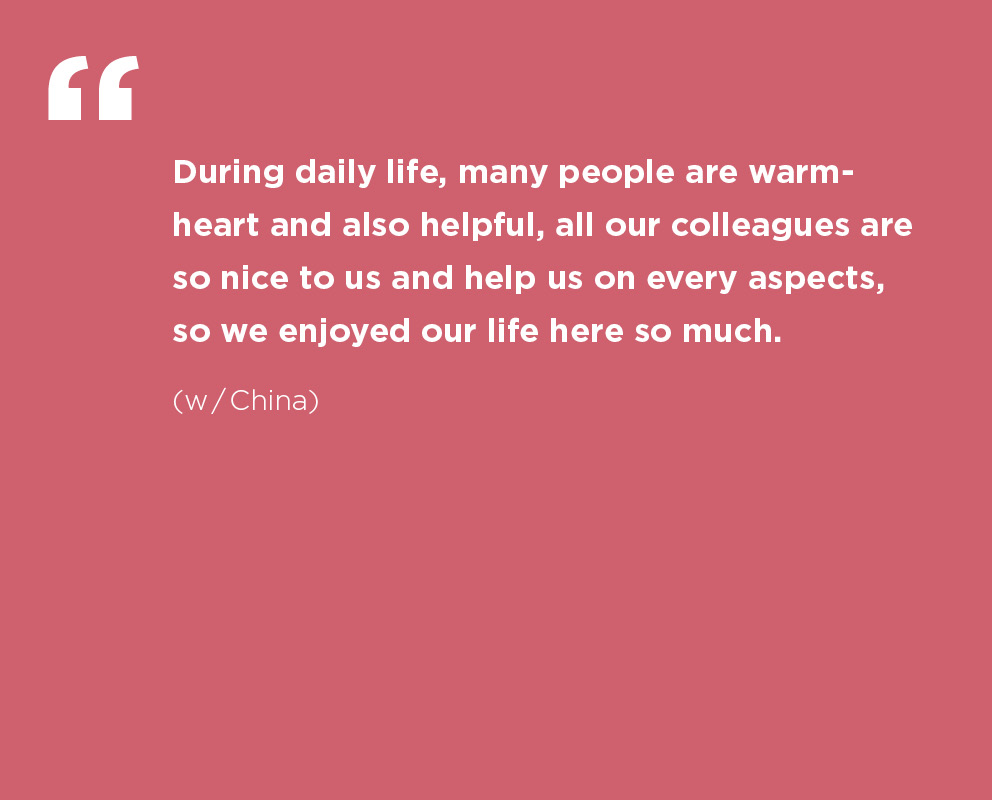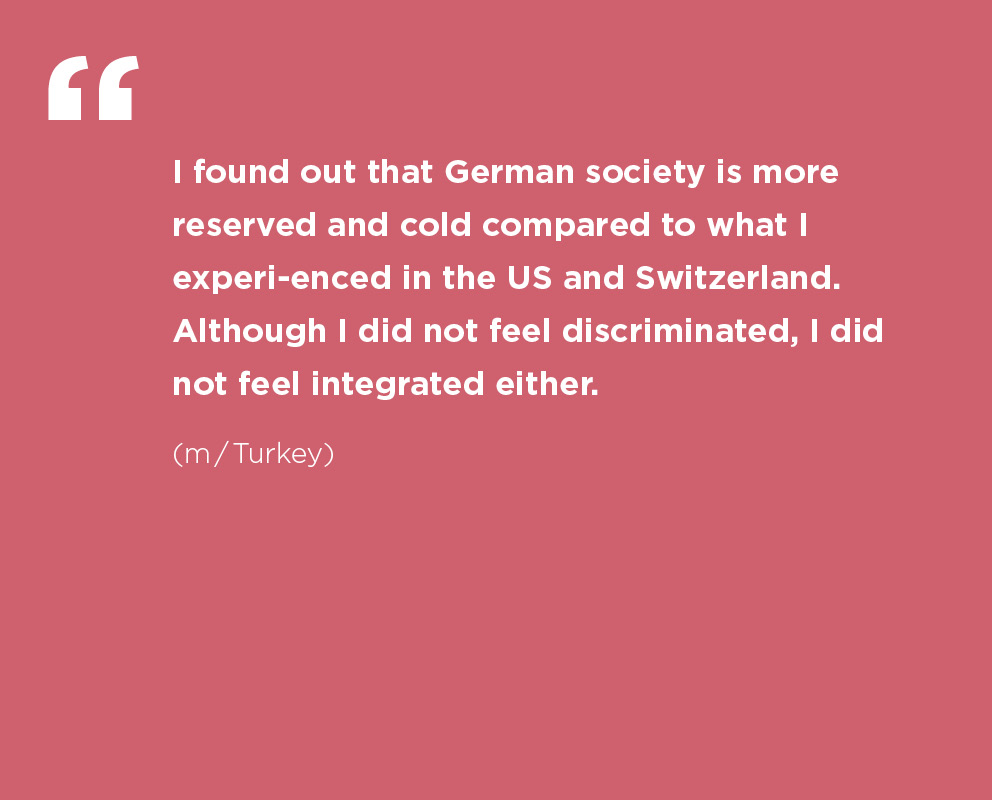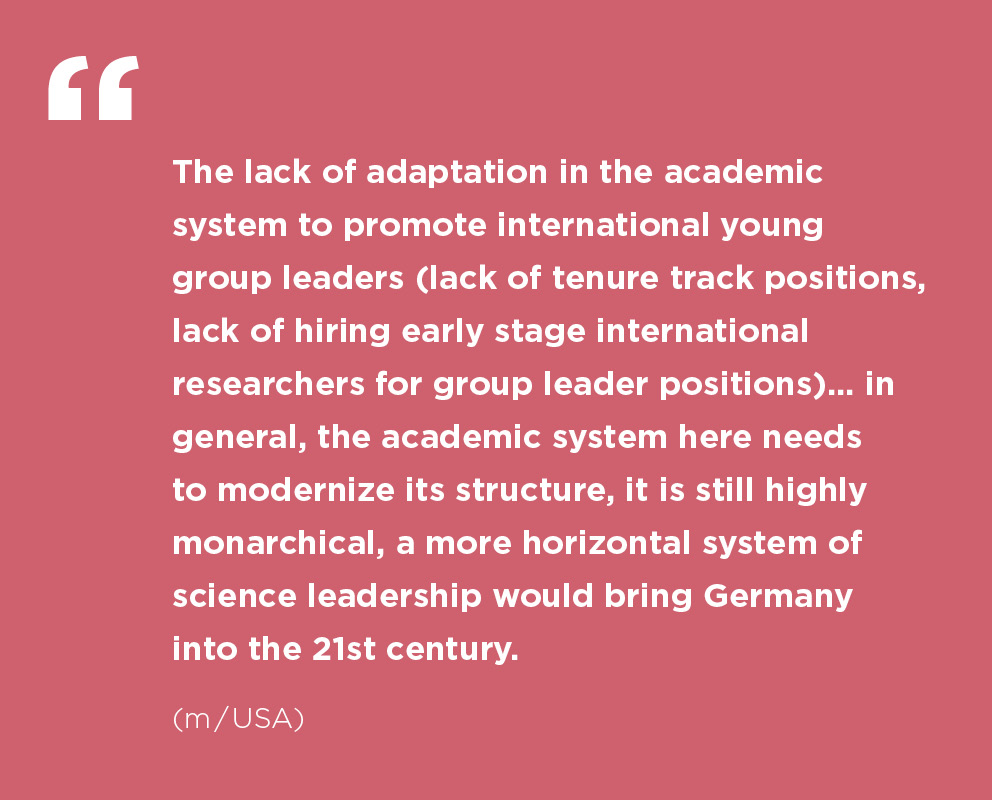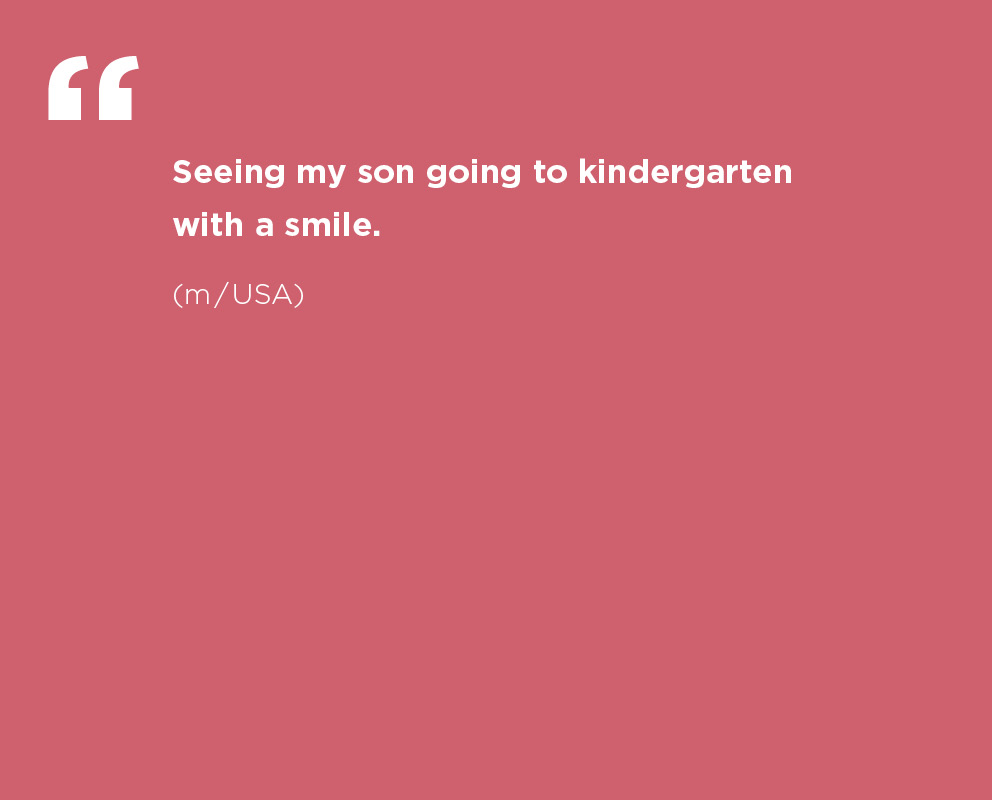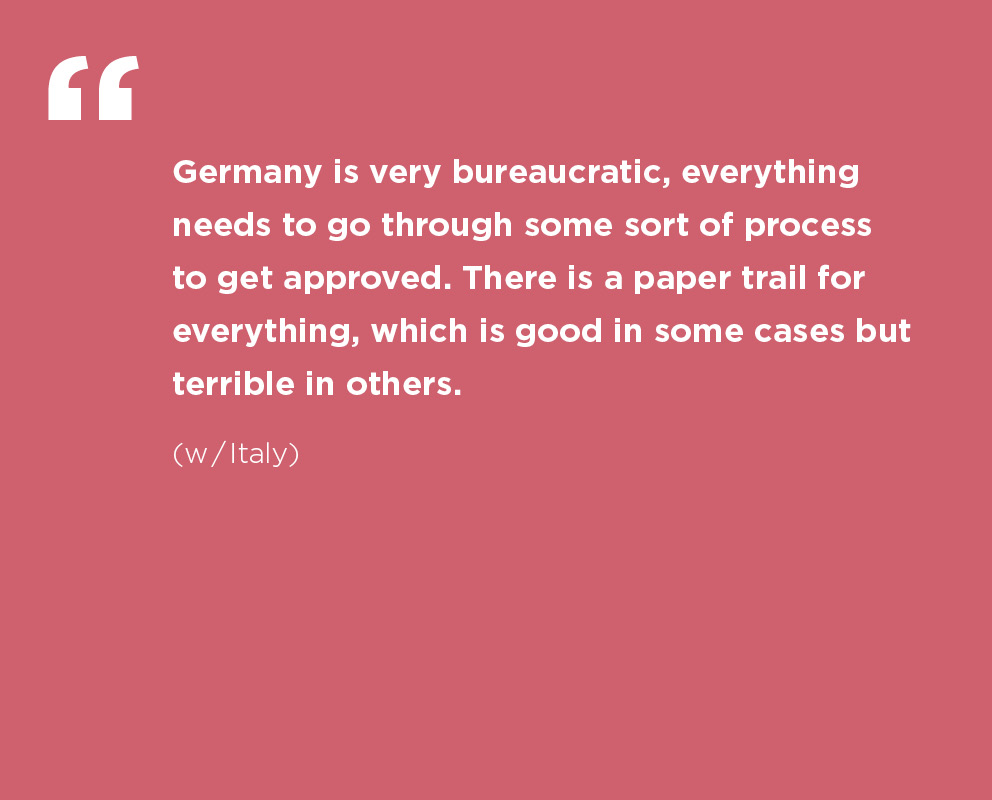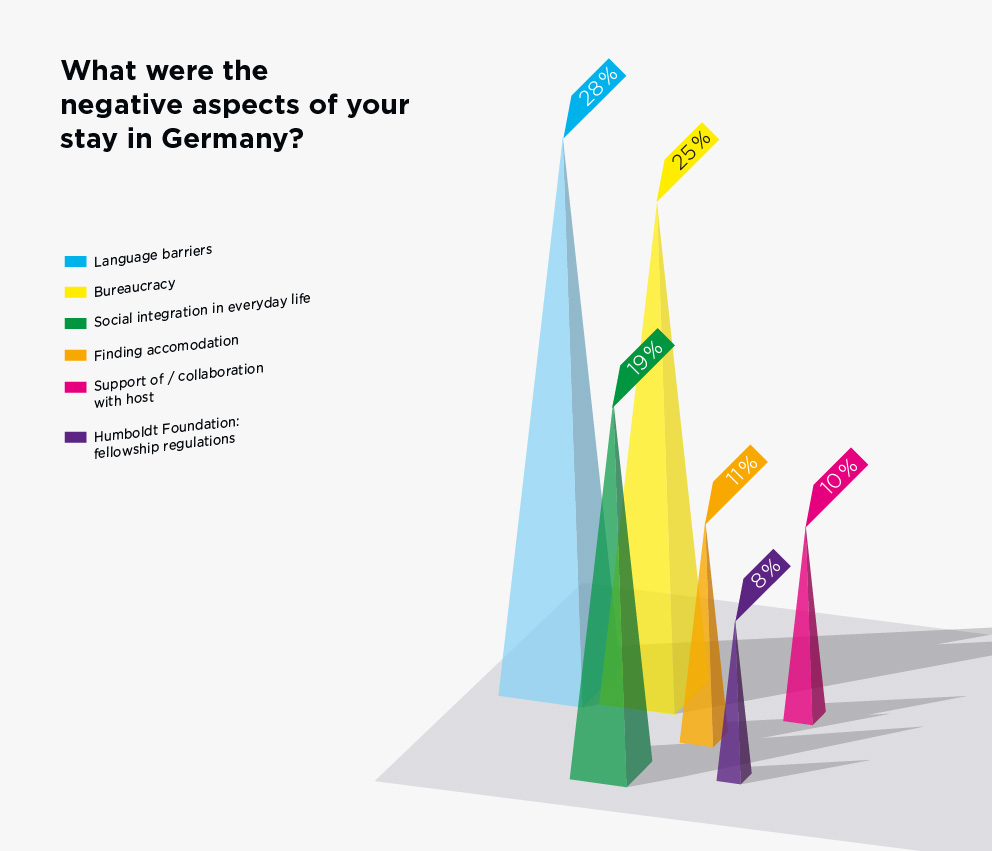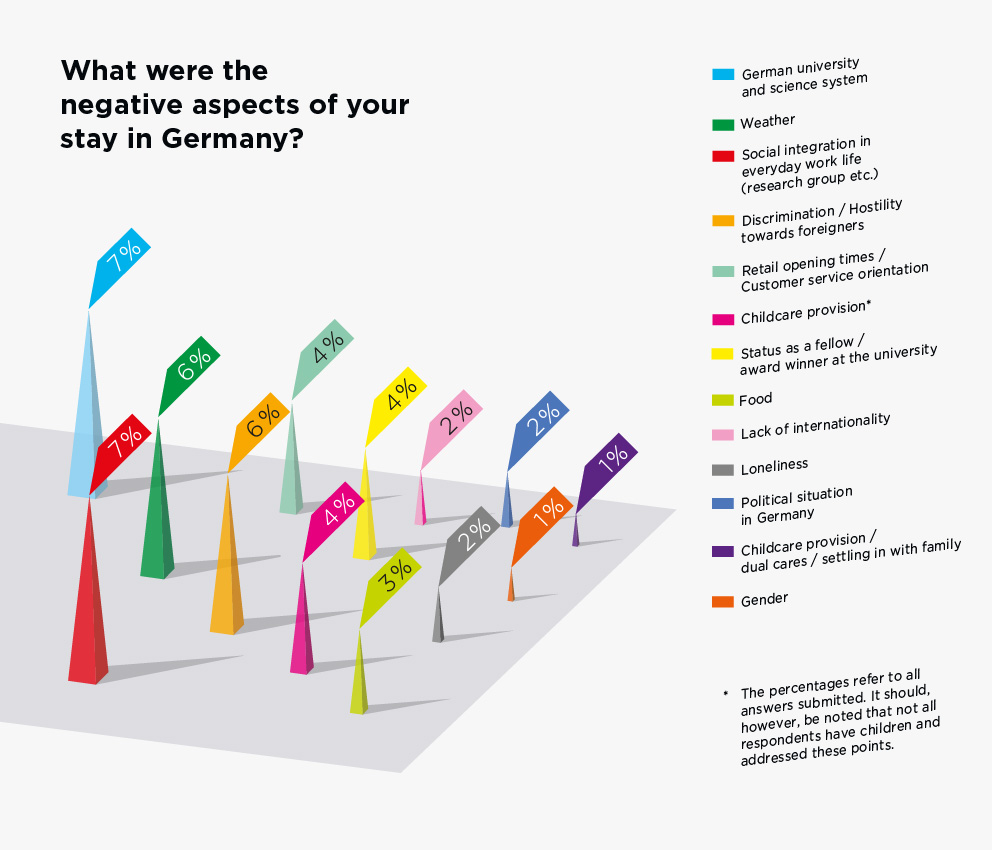Jump to the content
- {{#headlines}}
- {{title}} {{/headlines}}

Background
At the end of the fellowship period, the Foundation asks its sponsorship recipients to provide feedback on their rese arch stay in Germany online. They evaluate various aspects of their stay on a given scale and, in some cases, are able to add free comments, as well. All responses are anonymised for the purpose and the comments are evaluated using qualitative content analysis. Over 95 percent of those sponsored in the last six years completed the survey. The results thus reflect a comprehensive, representative picture of Germany a s seen through the eyes of the Foundation’s fellows.
If you are granted a Humboldt Fellowship and spend time working on research in Germany, you are bound to form an opinion about the way academia works at German universities and research institutes, and you will also get to know the country and its people: How open and tolerant are Germans towards their guests? What about their sense of humour? Are people here progressive, bureaucratic, hospitable? How well-equipped are the labs and the libraries? And what about working hours, childcare and junior researchers’ career prospects?

These are the questions the Humboldt Foundation asks its sponsorship recipients at the end of their fellowship. Researchers from all over the world assess how they and their families have experienced the 18 months the average fellow spends here during their research stay. The survey invites open comments, not least on how Germany compares with the fellow’s own country.
The evaluation “Germany from the outside” collates the results of the surveys conducted in the last six years from 2013 to 2018 and evaluates the responses of a total of more than 1,800 Humboldt visiting researchers from over 140 countries. The results show that Germany and its science system are largely perceived very positively and also hold their own internationally. Depending on where the respondents come from, however, there are points of criticism.
Germany: Pro science, progressive, tolerant and even humorous. If only it weren’t for the bureaucracy.
Research: Quality and financing: top! But who takes care of young talents?
In comparison with other parts of the world, Germany is largely rated positively – with clear differences in some cases depending on whether the respondents come from Africa or North America, for instance. Despite these divergencies, everyone is agreed on the fields in which Germany is strong, such as infrastructure, and weak, such as dual career opportunities and promoting junior researchers.
Careers and workload: A question of perspective
The answers to this question differ enormously depending on the country of comparison. Japanese and American researchers think working hours are better than at home. French and British researchers consider professional opportunities to be worse here whilst their Chinese and Italian colleagues think they are better. All in all, Germany largely performs favourably, although there is room for improvement in comparison with certain countries.
„Deutsche Bahn is the best in the world!”
From food and culture via local transport and rents to the atmosphere in society and at universities: what the survey respondents particularly wanted to express. A selection.
Well cared-for: Germany is comparatively child-friendly
There is a shortage of places in nurseries and day-care centres. Plenty of parents in Germany could write a book about it, but in comparison with other countries, childcare provision seems a lot better. Especially Scandinavians think German childcare provision could be upgraded.
Individual points of criticism: Language barriers and bureaucracy are the most annoying.
Fellows were asked to comment freely on any aspects or describe personal experiences they perceived negatively. Out of 1,803 respondents, 1,277 answered the open question “What were the negative aspects of your stay in Germany?” appropriately. The most frequent points of criticism were language barriers and bureaucracy.
published in Humboldt Kosmos 110/2019

